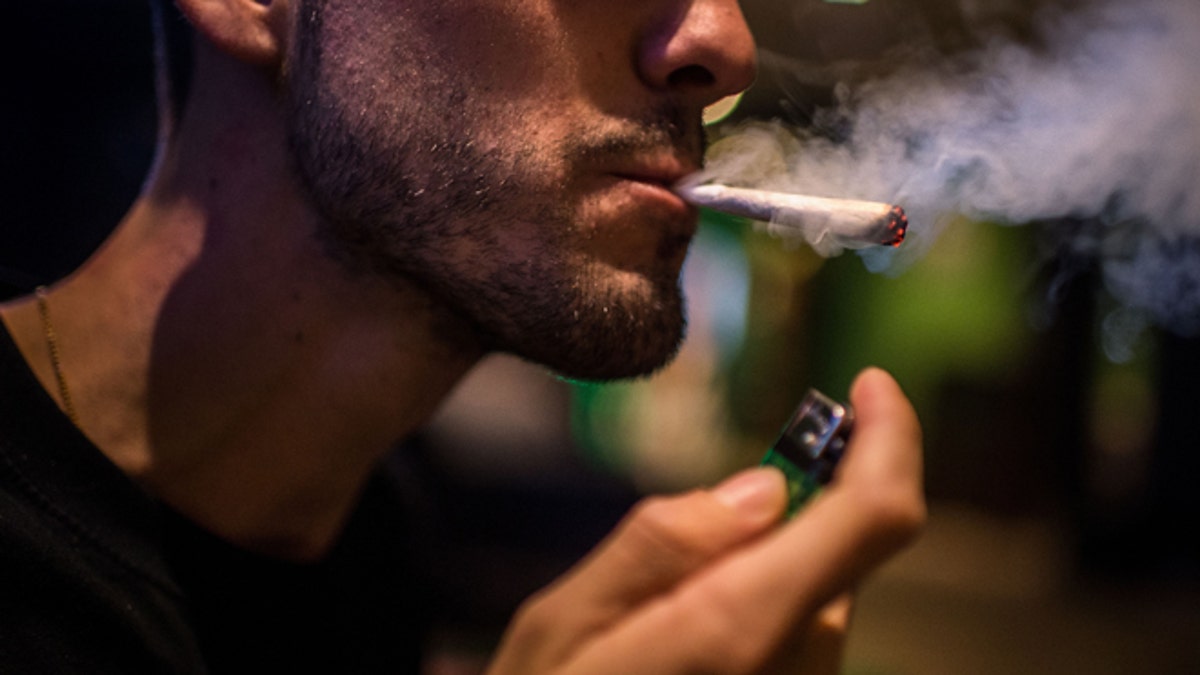
(Photo by David Ramos/Getty Images) (2014 Getty Images)
For the last couple of years, Mexican legislator Fernando Belaunzarán has watched as millions of Americans in 24 states across the country have approved the legal use of marijuana – mostly as medicine but also for recreational use in Alaska, Colorado, Oregon and Washington.
As a deputy in the Congress, Belaunzarán has tried to get Mexico to do the same, but the country has stuck to laws banning the drug, although millions of tons of it is harvested in the country every year.
Only in recent months has the topic of legalization been taken up in earnest, discussed in courtrooms, in the corridors of power and in the mainstream media.
"We should have taken up [legalization] a while ago," Belaunzarán told Fox News Latino. "Now we've done it poorly and late, while over [in the U.S.], there's already an industry, companies that even send marijuana to this country through our porous border."
He also said, “In Mexico the politicians are cowards, and, even now, they accepted the debate only … because they had no other choice with the legalizations in the United States.”
Mexico outlawed the cultivation of marijuana in the 1940s, bowing to pressure from the United States, and, since then, the Mexican black market for the drug has only grown, empowering the country's already mighty criminal organizations.
Belauzarán was one of the first Mexican legislators to bring back the legalization debate. For him, it was an imperative brought about by the country's fight against drug cartels, which since 2006 has left some 53,000 dead, more than 26,000 disappeared and an unknown number displaced.
Another legislator, Elsa Conde, has also tried to legalize the industrial production of hemp – a fibre derived from marijuana plants that can be used commercially in the production of rope, clothing and construction material.
Like Belauzarán’s proposals, however, Conde has been frustrated by a lack of cooperation from her fellow federal deputies.
Despite that, the fight for marijuana legalization in Mexico is gaining steam, with ordinary citizens taking up the fight to try to force authorities to accept cannabis use.
Raúl Elizalde, father of an epileptic 8-year-old girl, Graciela, convinced a federal judge last month that his daughter needed medical marijuana to treat her condition.
It's now imported from California at $250 per dose.
Another case was brought by the founders of the group Josefina Ricaño, Armando Santacruz and Juan Francisco Torres and has reached the country's Supreme Court, where justices next week will discuss the right to grow, consume and transport pot for personal consumption.
"What's at stake is the individual liberty of people," said Justice Arturo Zaldívar, author of the opinion that, if approved by the rest of the justices, would set a precedent in Mexico for the legalization of pot, despite the opposition of many in the highest levels of government.
"We don't want to turn ‘Chapo’ Guzmán into an entrepreneur," said Arturo Escobar y Vega, the subsecretary of the Interior Ministry, in a recent interview with the newspaper, El Universal, when he was asked about possible legalization.
Other powerful opponents include the Secretary of Health, Mercedes Juan, and President Enrique Peña Nieto himself, who was waiting to take over the presidency in November 2012 when Washington and Colorado became the first U.S. states to vote to legalize recreational use of marijuana.
Luis Videgaray, the chief of Peña Nieto’s transition team at the time, pointed out that the votes complicated matters for the Mexican government.
"Obviously we can't handle a product that is illegal in Mexico, trying to stop its transfer to the United States, when in the United States, at least in part of the United States, it now has a different status," Videgaray told reporters. "I believe this obliges us to think the relationship in regards to security ... This is an unforeseen element."
Among the official arguments against legalization, opponents point out that Mexico has signed a number of international treaties pledging to fight the trade in marijuana and other illegal drugs – treaties that have been ignored by states in Mexico's northern neighbor.
Leopoldo Rivera – editor of the Mexican magazine Hemp, which launched in May and is already under investigation by officials for "inciting consumption" – told FNL, "We should do the same as Washington and Colorado, which haven't taken into account international treaties. They said, 'We live here, and we want this for ourselves.'"







































